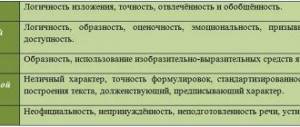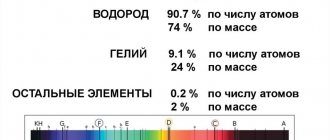Interesting facts about Literacy Day
You can tell your friends and acquaintances a lot of interesting things on Literacy Day. On September 8, it will be useful for them to learn the most unusual details about various languages of the world.
Many people think that only people in the poorest and most backward countries do not attend school. However, it is also worth taking into account such a factor as traditions, which often suggest that it is not at all necessary for a woman to have an education, especially if the girl is married off early. Therefore, for example, in Brazil, Egypt or China there are quite a lot of such women.
- According to the latest census in our country, 91% of the population received secondary or higher education.
- Moreover, in 15 countries of the world, half of the children do not even have a primary education.
- In the Russian language there are words where three letters “e” appear in a row, for example, “short-necked” and all its derivatives. And also this word “snake eater”, although the context of its use is quite difficult to imagine.
- The longest word in the Russian language is “water-mud-peat-paraffin treatment.”
- Literacy courses are not only boring cramming of rules, but also exciting journeys into the depths of centuries. For example, linguists use the term "hapax" to refer to a word that appears only once in a given language. As a rule, any native speaker will understand its meaning, but there are also those that even scientists cannot decipher.
- What it is: errors of interpretation or incorrect translation - no one knows yet. In Russian, such a hapax is the word “Rusichi”. In ancient Russian texts it was used only in “The Tale of Igor’s Campaign,” but now it is one of the most popular synonyms for the Slavs.
- Among such words we can also mention: “bludorez” (Russian), “dzheregel” (Ukr), gertsum-srolik (Belarusian), ?А?ТНР (Greek), celtis (Latin).
- Moreover, these are, indeed, unique constructions, over which linguists stage real battles, proving this or that version, but until other manuscripts with such variants are found, all assumptions can be nothing more than speculation.
- The most beautiful word in the world was called the Turkish “yakamoz”, which translates as “reflection of moonlight in water.”
- The most pleasant English lexeme for foreigners turned out to be “mother”. Words such as “smile”, “love” and “eternity” were also included here.
- By the way, German expressions are usually considered the longest, but in English there is a term that consists of more than 1900 letters. This is a description of one of the chemical formulas. There is no point in writing it, because it will take up almost a page of text.
- In general, I recommend that all lovers of long words go to a Welsh city called Llanfairpwllgwyngyllgogerychwyrndrobwyll-llantysiliogogogoch. How many times have you tried to read this title until you gave up trying in vain?
- Malaysia went even further and came up with the longest abbreviation. SKOMKHPHKJCDPWB is the name of a corporation that engages in banking operations. Imagine how long its transcript will look?
- Are you making fun of the Malays? Here is the longest Russian abbreviation - NIIOMTPLABOPARMBETZHELBETRABSBORMONIMONKONOTDTECHSTROYMONT. Even though I am a native speaker, I had great difficulty reading it myself.
By the way, many modern words that we actively use were created by famous writers, and were once neologisms.
For example,
- Lilliputians were invented by Jonathan Swift;
- Fyodor Dostoevsky introduced “to shy away” into literature;
- Mikhail Lomonosov gave us “horizon”, “diameter”, “square”, “acid”, “minus”, “equilibrium” and “refraction”.
My favorite category is one word that can succinctly describe an entire phenomenon or state. For example,
- Italians call “abbiocco” a slight drowsiness that appears after a heavy dinner or lunch;
- the Spaniards coined "sobremesa", which describes pleasant conversation at the table after a meal;
- Norway has a very short summer, so if you go out to drink beer and want to soak up the gentle sun, then this action will be called “utepils”.
Although most often we have to deal with the German verschlimmbessern. This is a situation that we tried to improve, but only made it worse.
In this case, I remember the Chinese who, on a bridge where many suicides were committed, hung posters with positive messages and installed a mirror where it was written: “Look what a wonderful person is in front of you”! As a result, the number of suicides here has increased several times.
International Literacy Day, its origins and significance
As you already know, there are over 870 million illiterate adults and children on Earth today. The problem of literacy is of particular importance in countries where there are frequent military operations, revolutions and civil unrest - in third world countries. This is precisely what became the main prerequisite for the emergence of International Literacy Day, because it is designed to draw public attention to the problem presented.
On September 8, 1965, the world's first conference of education ministers was held in the capital city of Iran, Tehran, at which the problems of eliminating illiteracy were discussed. And already in the next 1966, UNESCO, sharing the proposal of the conference members, proclaimed September 8 as International Literacy Day, the purpose of which was to intensify the efforts of the world community to spread literacy.
Since then, international conferences have been organized annually on September 8th on a variety of topics related to literacy: “Literacy and Health”, “Literacy Enables Development”, “Literacy Empowers Personality”, “The Importance of Literacy for Women”, “Literacy in the Digital World”, “Reading the past, we write the future,” etc., and the Day itself began to acquire its own traditions and customs.
From now on September 8:
- competitions, quizzes, olympiads and open lessons are held in which teachers identify the most diligent, diligent and successful students;
- Lectures are organized where the problem of illiteracy of the world population and residents of individual states is highlighted;
- meetings and conferences of teachers are organized with awards for the most outstanding specialists;
- Literacy lessons are held in libraries and educational institutions and specialized literature is presented to help improve the quality of people's literacy;
- Activists in different countries distribute leaflets on the streets with the rules of native languages, books and magazines that increase literacy levels.
Experts around the world unanimously recognize the need to develop literacy programs aimed at “problem” groups of people (especially those who, for whatever reason, are deprived of the opportunity to attend school).
Through International Literacy Day, innovative solutions to literacy challenges are developed and proposed to improve the literacy rate of the world's population in the future.
Currently, International Literacy Day is celebrated all over the world, and representatives of many states, governmental and non-governmental organizations, individuals, all kinds of communities, as well as teachers, experts and students participate in the celebration. September 8th also marks the presentation of international literacy awards to those who have come up with promising ideas.
As you can see for yourself, the problem of literacy in modern society is very acute, and the attitude towards it is very serious. We hope that this problem has at least some significance for you (we also recommend reading the article “Why is it important to be literate”), especially since the picture of the state of affairs on the presented topic, based on the facts we presented, is not at all rosy.
Of course, we understand that not everyone is able to contribute to the spread of literacy among the illiterate population of the planet, but each of us has the power to ensure that there is at least one more literate person in the world. And all that is required is to engage in your own literacy.
As for the facts about literacy themselves, of course, we have not presented everything that can be found. Therefore, if you have any interesting information on this issue, we will be very grateful if you share it with us in the comments. We, in turn, wish you good luck and a clear understanding that literacy is one of the surest paths to personal happiness and the well-being of the society in which we live.
See you!
We also recommend reading:
- Storytelling
- How to write correctly: 8 ways to improve literacy
- What does it mean to be literate in the modern world?
- How to independently learn to write correctly in Russian
- Why is it important to be literate?
- Interesting Youtube channels about finance and business
- A selection of courses for children and parents
- Causes of illiteracy and voluntary illiteracy
- Modern types of literacy
- Literacy. Is it necessary in the modern world?
- How to quickly improve your literacy level
Key words:1Russian
Test
By the way, here's a short literacy test: will you try to guess some interesting linguistic riddles?!
Which word contains 3 “g” and 3 “i”? Which word has three “in”? Which word has 3 letters “e” at the end? Where are the three "I's" at the end? Which word has 300 “n” letters?
Well? Have you stretched your brain? Here are the answers.
Of course, this is a joke test, and hidden here are “trigonometry”, “inside”, “edge”, “nutria”, and at the end “Tristan” was waiting for you. Was the literacy test good?
What can you give to “literate” people?
If your loved ones are in any way connected with the field of education and are trying to increase the level of literacy in the country, be sure to congratulate them on their professional holiday and come up with something interesting as a gift.
- Of course, the foundation of literacy was laid in your school. But tomorrow you can go to some interesting lecture on the Russian language.
- What is the best way to consolidate what you have learned? That's right, a good book.
- In general, make reading a family habit: read to your children and family before bed.
- Organize a library at the entrance. Place several books on the windowsill and label them accordingly. Surely there will be lovers and even those who will put down their books.
- Learning literacy is impossible without writing. Give them a nice pen and a set of writing paper.
- Send a postcard to your friends and acquaintances. One that is handwritten. Imagine how nice it will be to receive it?
Many people who are financially secure are trying to invest in improving literacy in the world. But without the very desire of people to learn, all this is useless. Many people believe that they don’t need this at all, and that they can earn a lot of money without having a secondary education at all. Well, in life sometimes this is confirmed.
Like 5
What is literacy?
The history of literacy begins with the creation of the first alphabet. After the appearance of the alphabet, writing appeared, and therefore reading. Literacy begins at the moment when writing becomes conventional and its understanding does not require special preparation.
Literacy can be found in any area: professional, political, economic, etc. We will focus on literacy in its traditional sense.
The meaning of the word in Ushakov’s Explanatory Dictionary of the Modern Russian Language: “Literacy is the ability to read and write.”
The dictionary of synonyms gives the following idea about this concept: “awareness, competence, familiarity, knowledge, competence, qualifications, awareness.”
In the Great Russian Encyclopedia, the word literacy is interpreted as “a certain degree of proficiency in reading and writing skills in accordance with the grammatical norms of the native language. In relation to the characteristics of the population, it is one of the basic indicators of its socio-cultural development” [3, p.618].
According to the dictionary of S.I. Ozhegov, the word “literate” means a person who can read and write, as well as who can write grammatically correct [4, p. 123].
Conclusion: Thus, we see that literacy is not only a person’s ability to write and read correctly. Most often, this term is understood as a person’s ability to clearly and coherently express his thoughts, while observing the rules of spelling, punctuation, and spelling norms. But to be literate, you need to have certain knowledge, skills and abilities in order to participate in social processes and be useful to society. Literacy is part of a person's overall culture.



